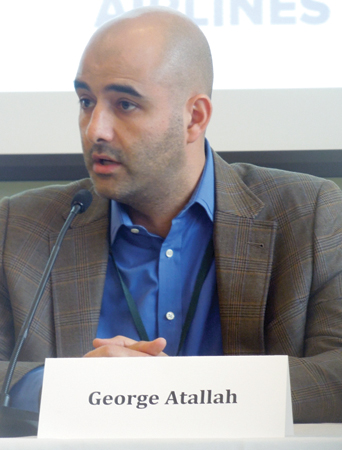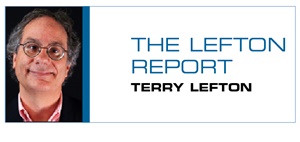At Harvard Law School, a venue accustomed to deliberation, some of the leading practitioners in the business of sports recently gathered to debate some of the industry’s most critical issues. Chief among those were escalating media rights fees, which have been the catalyst driving the growth of sports for decades. If anyone in attendance had the
answer to the perpetual question of when media rights fees will slow their exponential growth, it wasn’t offered.
“None of us know when this bubble will burst,” said Rich Gotham, president of the Boston Celtics, who in 2011 completed a 20-year rights deal with Comcast that included an equity stake in the Comcast SportsNet New England RSN.
Industry confidence on continued rights-fee inflation is so institutionalized that it has created a scenario wherein the tail of rights fee escalation is wagging the dog of pro team ownership.
“You’ve got groups buying pro teams now because they like what they see as the future of their media rights,” said Andrew Kline, founder and managing partner of sports investment banking practice Park Lane.
“Our growth’s going to continue to come from media,” said Torrey Galida, COO of Richard Childress Racing. “NASCAR’s first network TV deal back in 2001 was responsible for a huge amount of growth within the sport. … As Fox and NBC really focus on NASCAR as a premier property for their cable sports channels, that will help us grow and reach a broader fan base.”
 |
Fox Sports’ Larry Jones: “Now the challenge is to turn those rights into profits.”
Photo by: TERRY LEFTON / STAFF
|
Even some of those who wrote the largest rights-fee checks expressed anxiety over a market scenario in which those fees continually escalate.
“What keeps me up at night,” said Larry Jones, Fox Sports Media Group executive vice president, “is how we are going to monetize all these huge rights fees and deals we’ve done over the last five years. Now the challenge is to turn those rights into profit.”
Others said the outlook for the overall cable industry was of more concern to them than whether the sports rights fees gravy train will ever slow.
“As long as the [overall] cable industry remains viable and healthy, the sports industry will do increasingly better,” said YES Network President and CEO Tracy Dolgin. “We are the engine driving industry growth. The health of the cable industry worries me more than the sports part of the cable industry.”
Threats of cord-cutting and, to an even greater extent, a la carte pricing were cast as industry villains by cable execs already anxious about affordability.
“It’s not whether or not people think it [cable TV] is a valuable asset,” said David Preschlack, executive vice president of affiliate sales and marketing for Disney and ESPN Networks Group. “It’s whether or not people can afford it. The lowest quintile of [annual income earners] in this country makes less than $10,000 a year. When they are faced with a $60 or $70 monthly cable bill, it’s not that they don’t want to buy, it’s just not feasible. … Within that lowest quintile are some of the best consumers of our products. That’s a scary thought as the income divide grows.”
> PEACETIME EFFORTS: With long-term collective-bargaining agreements at top sports properties ensuring no lockouts or strikes for the foreseeable future, the top execs representing athletes and management were asked what issues were paramount during this period of “unprecedented peace.” (The current MLB CBA expires after the 2016 season, the NFL’s ends in 2020, the NBA’s new CBA expires after the 2021 season and the NHL’s expires after the 2021-22 season).
 |
“The perception of peace” is dangerous for unions, the NFLPA’s George Atallah said.
Photo by: TERRY LEFTON / STAFF
|
NHLPA special counsel
Steve Fehr said that for his organization and the other pro athlete unions, one of the most taxing tasks is accounting for revenue. “We’re basically obligated to look under every rock to see if there’s any money they are hiding or not counting,” he said.
George Atallah, NFLPA executive director of external affairs, said “the perception of peace for any labor union is actually pretty dangerous.” Atallah said the NFLPA’s most pressing issues are health and safety concerns, including new protocols for injured players returning to play and testing for HGH. He said that while there is an agreement in principle with the NFL on testing for HGH and the disciplinary process around that, commissioner discipline in those cases remains a sticky issue. “If a player without a positive test is disciplined by the commissioner, players believe that should go to a neutral arbitrator,” he said. “The NFL believes that should go back to the commissioner.”
Until that issue is resolved, HGH testing in the NFL is unlikely.
Joel Litvin, NBA president of league operations, forecast no changes in the league’s labor-management dynamic when Adam Silver becomes commissioner next year, since Silver was chief negotiator during the last CBA “and he’s been glued to [Commissioner David Stern’s] hip for many, many years.” On the other hand, “It has been difficult to do business with the union because of their vacancy at the executive director level, but they are in the process of a search.” Billy Hunter was ousted as the NBPA’s executive director in February.
Terry Lefton can be reached at tlefton@sportsbusinessjournal.com.







